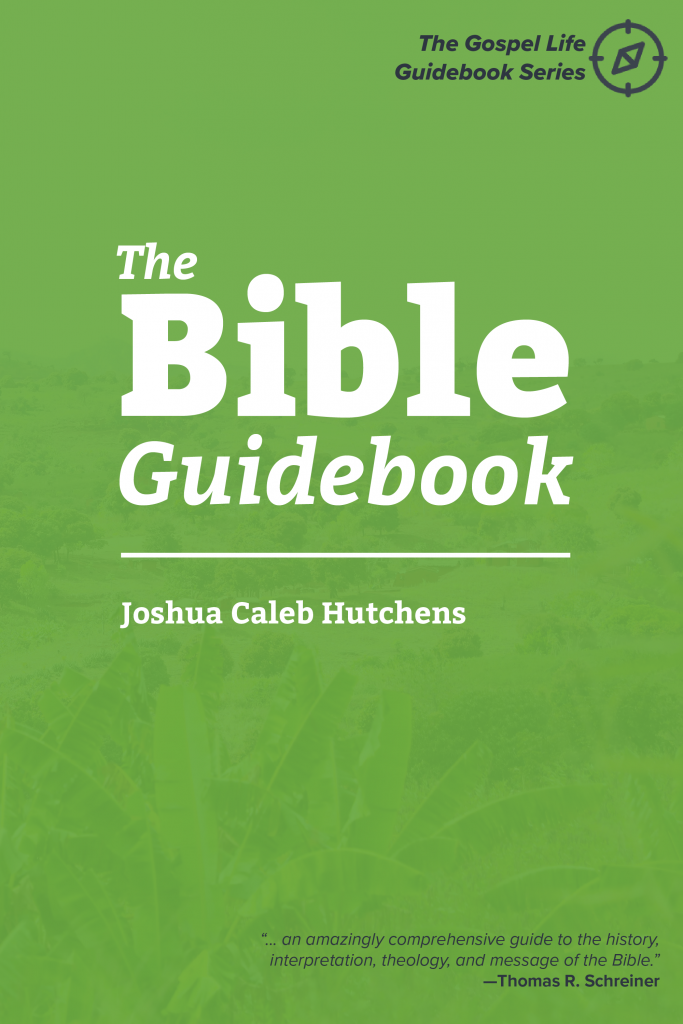Joshua Caleb Hutchens
Joshua Caleb Hutchens, Ph.D.
President | Gospel Life and Shepherds Academy
Adjunct Professor | University of the Cumberlands
B.A., Boyce College
Adv. M.Div., Th.M., Ph.D., The Southern Baptist Theological Seminary
Dr. Joshua Caleb Hutchens serves as President of Gospel Life and Shepherds Academy as well as an adjunct professor in the Department of Missions and Ministry at the University of the Cumberlands. Dr. Hutchens and his wife Stacy Leigh founded Gospel Life in 2016 and were appointed missionaries to Malawi. His academic research and writing focuses on biblical theology.
Dr. and Mrs. Hutchens are members of Hardin Baptist Church in Hardin, Kentucky. They have five children.
Previously, Dr. Hutchens pastored two churches in Kentucky and served for two years as a missionary in Moldova. He holds a Ph.D. in biblical theology from The Southern Baptist Theological Seminary, where he also earned his Advanced M.Div and Th.M. Dr. Hutchens received his B.A. in biblical and theological studies with a minor in missions from Boyce College.
Publications
Books

Persecution and Cosmic Conflict
The Biblical-Theological Reading of Genesis in Galatians
Forward by Thomas R. Schreiner
Wipf & Stock, 2024 (Forthcoming).
“But just as then the child born as a result of the flesh persecuted the one born as a result of the Spirit, so also now” (Gal 4:29 CSB).
Why do God’s people suffer? In Galatians, Paul makes an argument from persecution for the authenticity of his gospel. Persecution demonstrates that Paul and the Galatians belong to God and have believed in the divinely revealed gospel. While Paul does not offer an explicit theodicy in Galatians, his argument from persecution requires an implicit one. Paul’s theodicy can primarily be understood through his interpretation of earlier Scripture, especially the story of Isaac and Ishmael in Genesis.
In Persecution and Cosmic Conflict, Joshua Caleb Hutchens examines the theme of persecution in Galatians and Paul’s theological context in earlier Scriptures and early Judaism. Hutchens argues that Paul sees persecution as a manifestation of the cosmic conflict between God in Christ and the present evil age. Paul argues for this by appealing to earlier Scripture in Genesis. Hutchens offers a biblical-theological reading of Genesis that makes sense of Paul’s usage of the book in Galatians.

The Bible Guidebook
The Gospel Life Guidebook Series
Gospel Life Press, 2022.
When you set out on a new adventure, it’s essential to pack a guidebook that will help you along your way.
In The Bible Guidebook, biblical scholar and missionary Dr. Joshua Caleb Hutchens helps you to set out on the journey of studying the Bible. The Bible Guidebook introduces you to this book we call the Bible and helps you learn how to study it for yourself. He also gives you the basic historical and theological information you need to make sense of God’s word including information about ancient world history, each book of the Bible, and special topics like the tabernacle and the apocrypha.
Whether you are starting out on the journey yourself or guiding others along the way, The Bible Guidebook is the resource you need to understand the basics in a simple yet challenging way.
Articles

Reforming Theological Education
Past Lessons for Africa Today
Kērussōmen: A Journal of Theology for the African Church 5.1 (2019): 79–98.

How to protect your mission trip from abusers
The Ethics and Religious Liberty Commission (erlc.com), April 23, 2018.
In 2014, Matthew Durham arrived in Kenya from Oklahoma to serve as a summer missionary in a Nairobi orphanage. Today, he is serving a 40-year prison sentence. Why? Matthew Durham sexually abused four children multiple times in the month he spent in that Kenyan orphanage.
But Matthew Durham is an exception, right? Isn’t he just one evil individual among the 2 million American Christians who participate in short-term mission trips annually? Unfortunately, Matthew Durham probably isn’t an exception. In fact, evidence suggests that not only does sexual abuse happen during international mission trips, but that pedophiles are targeting your church’s mission trip as an opportunity to access children.

Christian Worship in Hebrews 12:28 as Ethical and Exclusive
Journal of the Evangelical Theological Society 59.3 (2016): 507–522.
In the final warning passage of Hebrews, the command to give thanks by offering acceptable worship in 12:28–29 connects the ethical instructions of chapter 13 with the theological argument of chapters 1–12. Consistent with the rest of the letter, worship in Hebrews 12:28 is based on the cultic accomplishment of Christ. Consequently, Christian worship consists of ethical living rather than sacrifice. On this basis, chapter 13 utilizes cultic language to describe an ethical life. Finally, by citing Deuteronomy 4:24 in 12:29, Hebrews establishes Christian worship as the exclusive way to worship the God of Israel in the new covenant era.
Book Reviews

Review of John Anthony Dunne, Persecution and Participation in Galatians
The Southern Baptist Journal of Theology 22.4 (2018): 131–133.

Review of William A. Dyrness and Oscar García-Johnson, Theology without Borders: An Introduction to Global Conversation
Journal of Global Christianity 3.1 (2017): 104–106.
Editorial Work

The Grace and Truth Study Bible
Theological Review Editor of the New Testament
R. Albert Mohler, Jr., General Editor. Zondervan, 2021.
The NIV Grace and Truth Study Bible paints a stunning canvas of the goodness of God’s redemptive plan revealed in the gospel of Jesus. Warmhearted and practical study notes guide your reading as you learn and relearn the good news of Jesus on every page. Whether you are just starting your walk with God or have been studying the Bible for years, you’ll gain fresh insights of grace and truth while you learn to love him more deeply.
Copyright © 2024 Joshua Caleb Hutchens | All Rights Reserved | Privacy Policy
